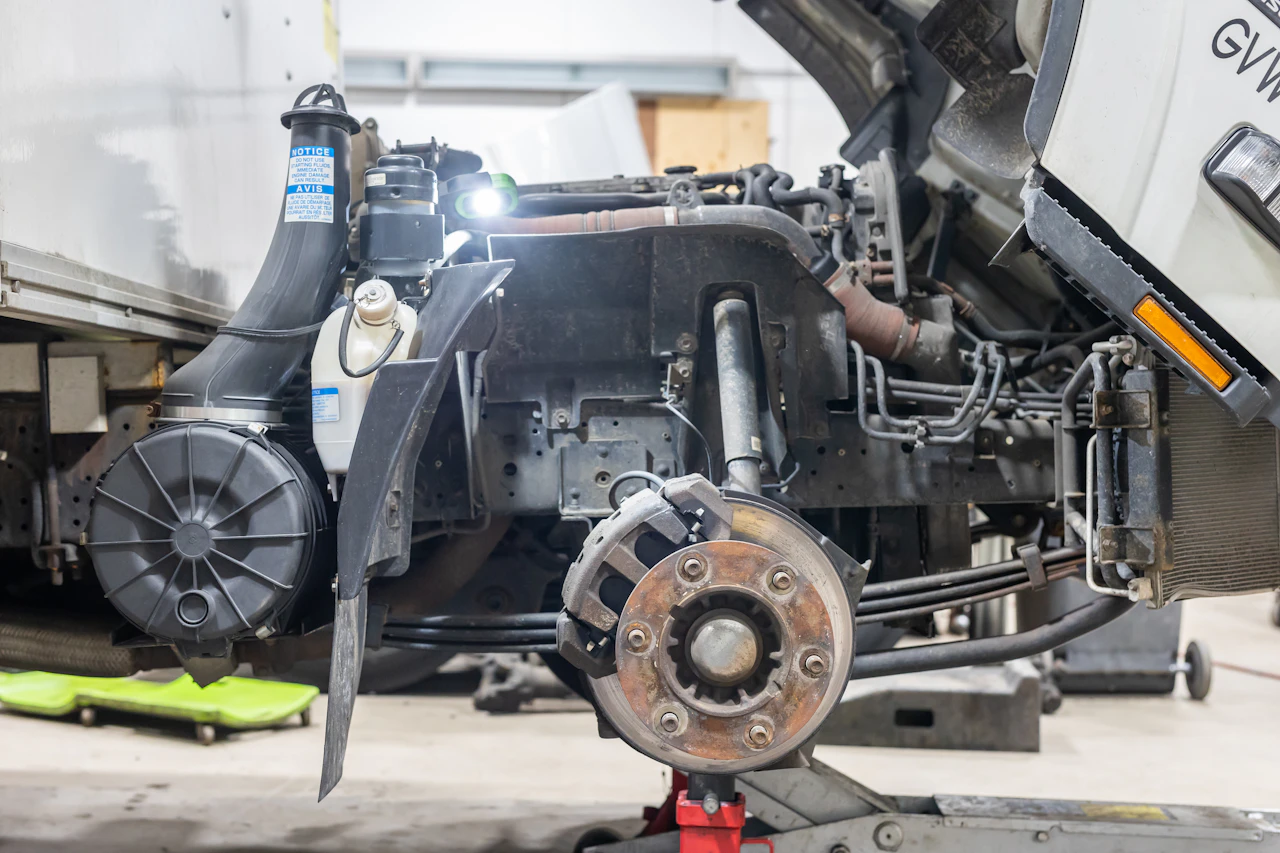Truck maintenance is a regular part of life for all truck drivers, fleet managers, and owners of delivery truck companies. You can only expect your Freightliner trucks to survive for a while, no matter how tough you believe them to be. Commercial Freightliner trucks, such as delivery trucks, are in a class of their own since they often carry goods and cover great distances. Even those devoted to routine inspections and maintenance will eventually have to deal with specific problems that call for repair.
Compared to other mechanical parts of your Freightliner truck, the transmission sees the most usage, abuse, and wear throughout its lifespan. However, some drivers and operators fail to complete the repair on time since the transmission service, maintenance schedule, and intervals vary depending on the year, make, and model of the trucks and commercial Freightliner trucks.
If your truck's transmission troubles are not fixed immediately, they might soon become more serious. Transmission repairs may severely impact your finances, and the longer your Freightliner truck is out of commission, the more money you lose. It is thus essential to pay attention to anything that sounds or feels weird. It pays to get your large rig checked out by a professional as soon as a transmission issue is noticed, especially if that professional has experience working heavy trucks.
But how can you tell whether the transmission causes the problems with your large rig? The following are typical signs that your gearbox is failing:
Transmission fluid leak
Fluid leaks are among the most superficial signs of a malfunctioning gearbox. This fluid is essential for your truck's ability to shift since it lubricates the moving elements in the gearbox. A little spill of transmission fluid on your driveway can cause a significant issue. Suppose the transmission fluid is dripping from the Freightliner truck. In that case, it is usually clear, brilliant red, and has a faintly pleasant odour when everything operates as it should. It's important to pump out all of the fluid and replace it with new fluid if it smells burned or has a dark, murky tint. Additionally, if the transmission fluid is running low, a professional must find and fix a leak.
Unusual movements of transmission
The gears should change smoothly in an automatic gearbox that is operating correctly. Have your truck's gearbox examined as soon as possible if shifting into the next gear causes the Freightliner truck to shake or if the transmission won't engage.
Additionally, a rapid increase in your truck's RPMs during gear changes indicates a delay and may suggest that the transmission fluid level has fallen. There are occasions when strange sounds accompany delays. When changing gears, if a delay is noticed, take your Freightliner truck to a repair to have it looked at.
Strange sounds
Unusual sounds that appear while shifting gears indicate that your Freightliner truck needs a gearbox repair. These noises, which might be grinding, growling, or gurgling, often occur due to low transmission fluid, improper ride height adjustment, or gear fractures.
Transmission slips
Slipping gears pose a major safety risk to the occupants of the Freightliner truck, as well as to other motorists and pedestrians around. They are also signs of a malfunctioning gearbox. In these situations, the driver slams on the brakes or accelerates swiftly to escape a dangerous scenario. A large truck that is slow to react, shifts into neutral, or hesitates between gears presents a safety risk. Feel free to take your large truck to a reputable transmission repair shop for a thorough evaluation if this is the situation.
Many contemporary gearboxes allow the driver to choose "safe mode" or "limp mode" to avoid such a problem. In these conditions, the truck's computer system or Freightliner truck will detect any anomaly with the gearbox and fall back to one gear. The driver can safely go to the closest repair facility since the gearbox will only use one speed and avoid changing.
Check Engine Light or Transmission Light
The check engine light may sometimes also be an excellent early warning indicator that the gearbox in your Freightliner truck is beginning to malfunction. It's not guaranteed that your large truck will break down soon if this light turns on. Several factors, some of which may not be connected to the transmission, may cause this indicator light to glow. But it would help if you didn't ignore this cautionary indication.
Using a diagnostic tool is one of the simplest methods to determine if the truck's gearbox is the issue. There are instances when a diagnostic code indicates a modest repair that averts severe damage that would need expensive repair. The diagnostic code may sometimes alert the technician to a significant transmission problem that needs extensive repair.
Accelerating problems
You can accelerate smoothly if your huge rig operates well while maintaining power. This system transfers power from the engine to the wheels to let your Freightliner truck accelerate. It may be because of inadequate compression, a blockage in the exhaust manifold, or an obstruction in the air filter if you notice sluggish or weak acceleration.
Final words
You should always take your heavy-duty truck transmission issues seriously. If you are facing any of these problems, get the help of a truck repair specialist. Then you can fix the problem and run your truck without any issues.

